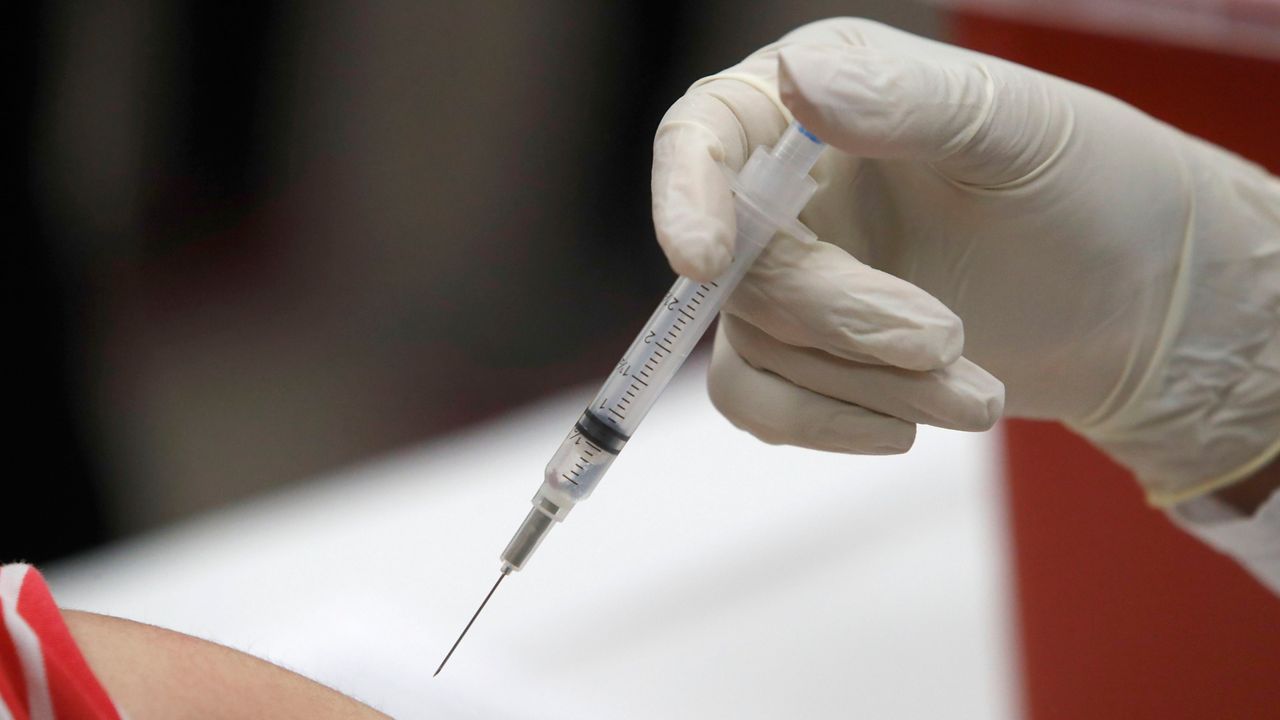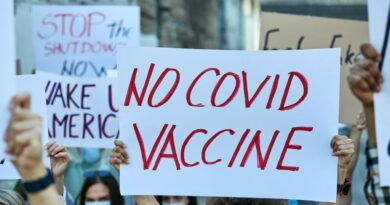Here’s What a Mandatory COVID-19 Vaccine Means

LOUISVILLE, Ky. — Last month, not long after President Donald Trump said the U.S. military will help distribute millions of doses of a forthcoming COVID-19 vaccine, a conspiracy theory quickly went viral. Stories falsely claiming that the government “plans to force a vaccine on everyone” were quickly debunked by fact-checking websites, but the idea took hold in some of the more paranoid corners of Facebook and YouTube.
For months, conspiracy theories surrounding compulsory COVID-19 vaccination have bounced around social media. The contours of the claims are generally the same, involving forced injections of an unsafe, or in some cases, actively dangerous vaccine. They’ve spread like the virus itself, first within the strident anti-vaccination community and then migrating well outside of it, with fear of “forced” vaccines raised by the likes of tennis superstar Novak Djokovic and former Texas Congressman Ron Paul, father of Kentucky Sen. Rand Paul.
But government officials and experts say there is simply no possibility of forced vaccinations. “They can say that everyone is encouraged to get one, or that it’s recommended,” said Michael Urban, director of the University of New Haven’s occupational therapy program. “They can even use the word ‘mandatory,’ but there are several Supreme Court cases that show that because of religious freedom or other medical issues, no one can be forced to get a vaccine.”
In August, Dr. Anthony Fauci said there is no consideration of mandating the vaccine “for the general population.” And just last week, in response to a pre-filed bill that would bar the state from requiring vaccinations, Kentucky Gov. Andy Beshear said no such thing is being considered.
“There’s no plan for a mandatory vaccination,” he said. “People deserve to see the information about how safe it’s going to be and to make a decision and that’s how we’re going to approach it.”
None of this has stopped the proliferation of vaccine skepticism though. A Morning Consult survey conducted in early April showed that 72 percent of Americans were willing to get a hypothetical COVID-19 vaccination, which could arrive as early as the first quarter of 2021. Polling conducted last week showed that number at 48 percent, a new low.
This is a major obstacle on the path to achieving herd immunity, said Dr. Lauren Grossman, a professor at the University of Colorado School of Medicine. Right now, fewer than 10 percent of Americans are thought to be immune from COVID-19 after contracting and recovering from the illness. An estimated seven times as many, or 70 percent of the country, will need to develop immunity in order to get the spread of the virus under control, she said.
“At that point it’s manageable for hospital resources and it’s manageable to get businesses open,” Grossman said.
In May, Grossman wrote an article for Stat arguing for a COVID-19 vaccine mandate. Despite the hate mail she received, she continues to advocate for such an approach, which would not mean forcing the vaccine on people, she said.
Instead, she envisions an approach similar to the one health care workers have taken for years with the flu vaccine. In a hospital setting, a mandatory vaccine means everyone gets vaccinated unless they apply for a religious or health waiver.
“You’re setting the expectation,” Grossmasn said. “And I think that’s what we have to do when we have the coronavirus vaccine. I don’t think 100 percent of people will get it. But we set the expectation that it’s mandated.”
While the world waits for a COVID-19 vaccine, some non-hospital settings have adopted the same approach to the flu vaccine, including the University of Kentucky, which is now requiring students who come to campus to provide proof that they’re vaccinated against the flu.
Some skepticism about the coming COVID-19 vaccine is expected, given the speed of development and the overt politicization by both Democrats and Republicans, Urban said. But he added that the parts of the vaccine approval process that are being rushed amount largely to red tape.
“They’re rushing the paperwork side,” he said. “The actual science, validating if it’s effective, is being more rushed in some ways. But the checks for health and safety, that part is still being upheld.”
*** This article has been archived for your research. The original version from Spectrum News 1 can be found here ***


